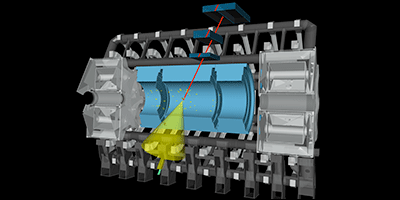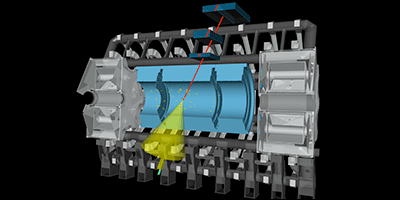No Quantum Black Holes Detected at LHC
We have gotten used to Einstein’s representation of spacetime, in which space and time are interwoven into a four-dimensional continuum. But according to certain quantum gravity theories, there may be some extra, hidden dimensions of space, curled up on a scale much smaller than a proton. In this case, theoretical calculations have suggested the Large Hadron Collider (LHC) could produce ephemeral objects called quantum black holes (QBHs) as it smashes particles together. Quantum-mechanical effects play an important role in these objects, making them decay instantly with no macroscopic consequences. The observation of such QBHs would thus call for a revision of our understanding of spacetime.
Now, as reported in Physical Review Letters, the collaboration running the LHC ATLAS detector—one of the two detectors involved in the discovery of the Higgs boson—has carried out an extensive search for QBHs by analyzing the full dataset of -tera-electron-volt (TeV) proton-proton collisions that took place at the LHC in 2012. Had such QBHs been created, they would have decayed into various particles that could be seen with the ATLAS detectors. ATLAS looked for a specific set of predicted decay products: an electron or a muon and a quark jet. While the search came up empty, the analysis set a lower bound of TeV on the mass of QBHs, which may help guide future searches. Larger masses may be probed at the next, higher energy LHC run. – Matteo Rini





